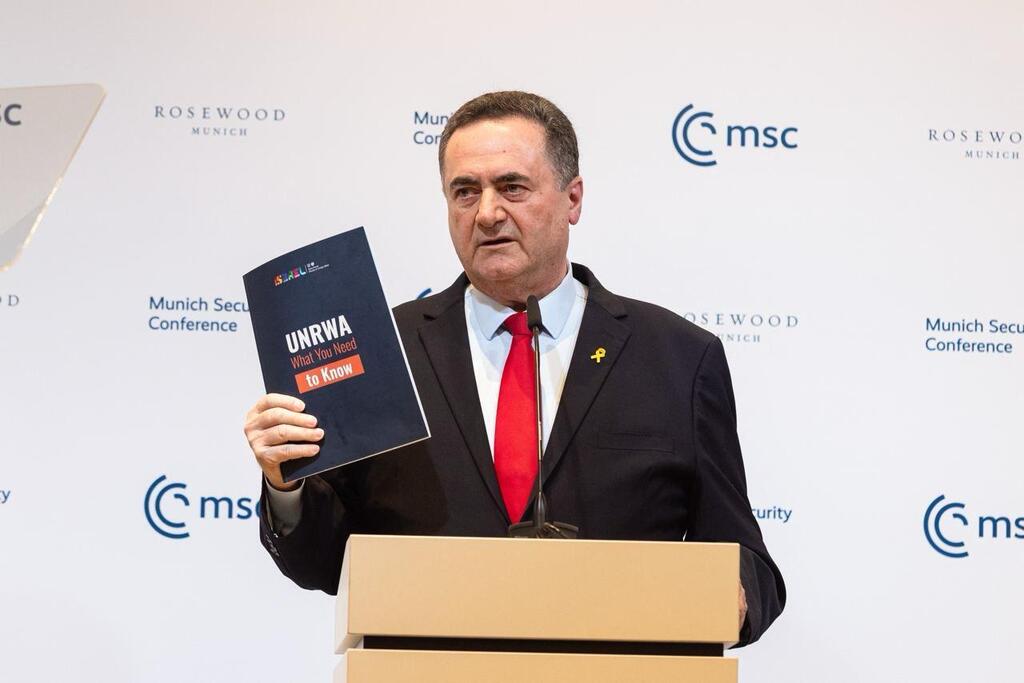Getting your Trinity Audio player ready...
Israel has been at war for over ten months, yet since October 7, only three countries — Bolivia, Belize and Colombia — have officially severed diplomatic ties.
While Colombia’s president announced the break, consular representation remains in place in both Israel and Bogotá. In the case of Bolivia and Belize, relations were largely symbolic, with no embassies in either country.
Colombian President Gustavo Petro says officially severs diplomatic ties
A Foreign Ministry internal document compared the current diplomatic situation during the war to previous conflicts, such as the Six-Day War, Yom Kippur War, the Second Intifada and Operation Cast Lead. The comparison shows that fewer countries have cut ties with Israel this time than during those past rounds.
"For over 10 months, my team and I at the Foreign Ministry have been working around the clock to secure the most crucial diplomatic achievement: extending the window of legitimacy for the IDF to rescue hostages and achieve the war's objectives," said Foreign Minister Israel Katz. "I’m in direct contact with dozens of foreign ministers worldwide, through visits, meetings, calls and even WhatsApp, to ensure there’s no unilateral cease-fire without the release of all hostages—a stance fully adopted by many of my counterparts."
According to the document, after the Six-Day War, four countries— the Soviet Union, Guinea, Hungary and Yugoslavia—cut ties with Israel. In 1972, three more—Uganda, Chad and Congo—followed. The largest number of countries to sever relations was after the Yom Kippur War when 25 African nations, including Rwanda, Kenya and Nigeria, broke ties with Israel. Most have since renewed relations.
Loose ties
In 1974, the Maldives cut ties, followed by Mauritius in 1976. Iran severed relations in 1979 after the Islamic Revolution. During the Second Intifada in 2000, Oman, Morocco and Tunisia cut ties and closed their diplomatic offices in Israel. Following Operation Cast Lead in 2009, Bolivia, Venezuela, Mauritania and Qatar severed relations, with the latter two formalizing the break in 2010.
Since the start of the war in 2023, Bolivia and Belize have cut ties, with Colombia following in 2024, while maintaining consular offices. Since October 7, Israel has yet to return its ambassadors, who were recalled for consultations from five countries: Turkey, Spain, Ireland, Norway and South Africa.
It’s complicated
In Chile, the situation is trickier. President Gabriel Boric recalled Chile’s ambassador to Israel, but Israel’s ambassador to Chile, Gil Artzyeli, remains in Santiago and continues his duties.
In Brazil, on February 9, President Lula da Silva recalled Brazil’s ambassador to Israel, Frederico Meyer, just hours after Foreign Minister Israel Katz rebuked him at Yad Vashem.
The reprimand followed Lula’s comparison of Israeli actions to those of Hitler and the Nazis. Despite this, Israel’s ambassador to Brazil, Daniel Zonshine, remains in Brasília, and the Consulate General in São Paulo continues to operate. While embassy staff continue to engage with state governors and parliament members, high-level contacts with Lula's administration have been stalled.
Similarly, in Honduras, the country recalled its ambassador, but Israel's ambassador remains, and the embassy operates as usual.








